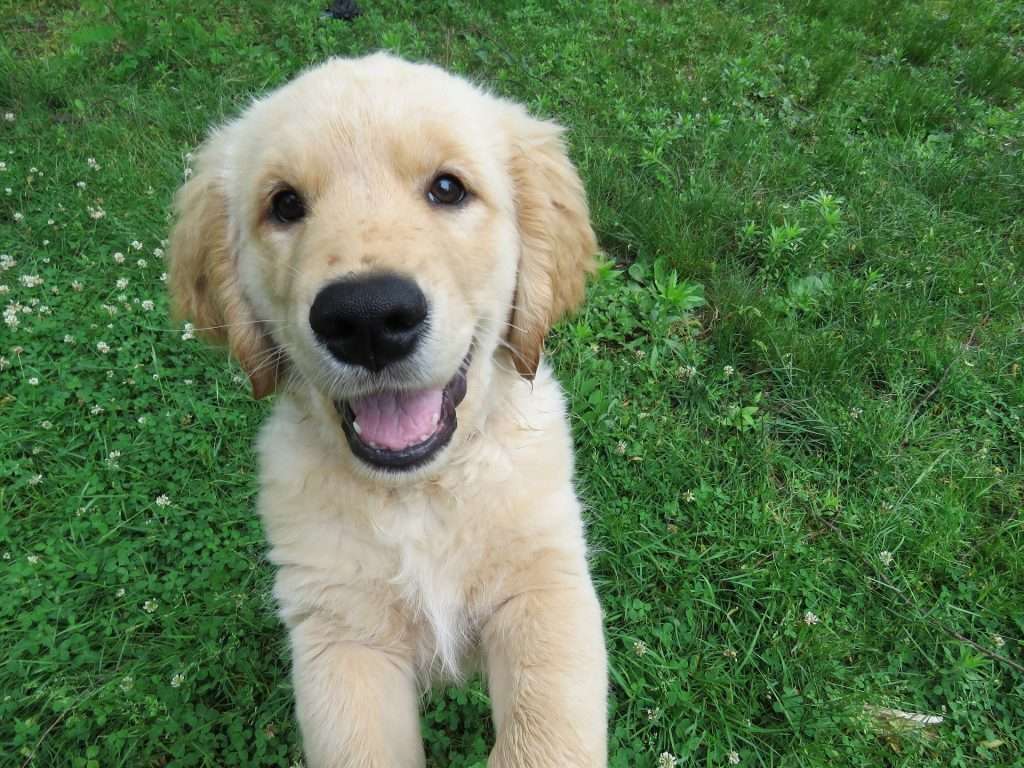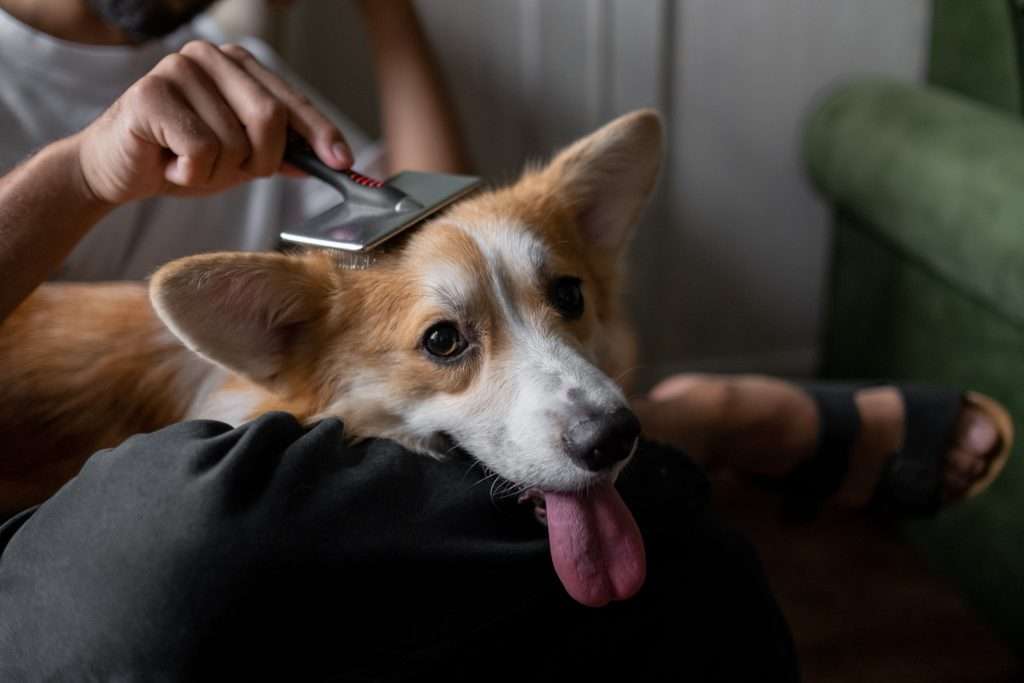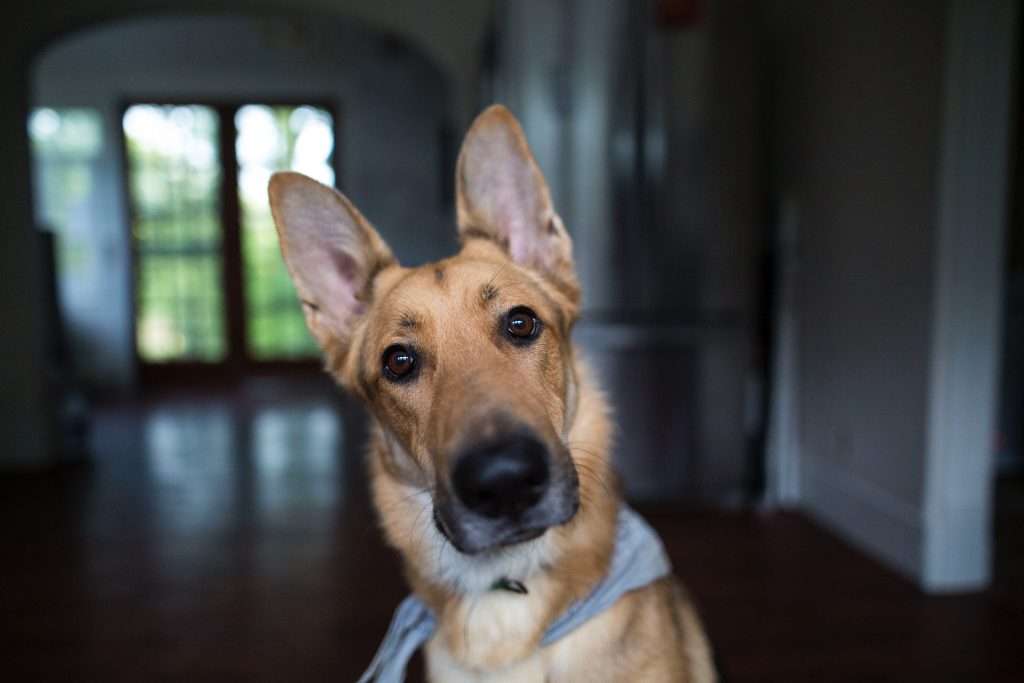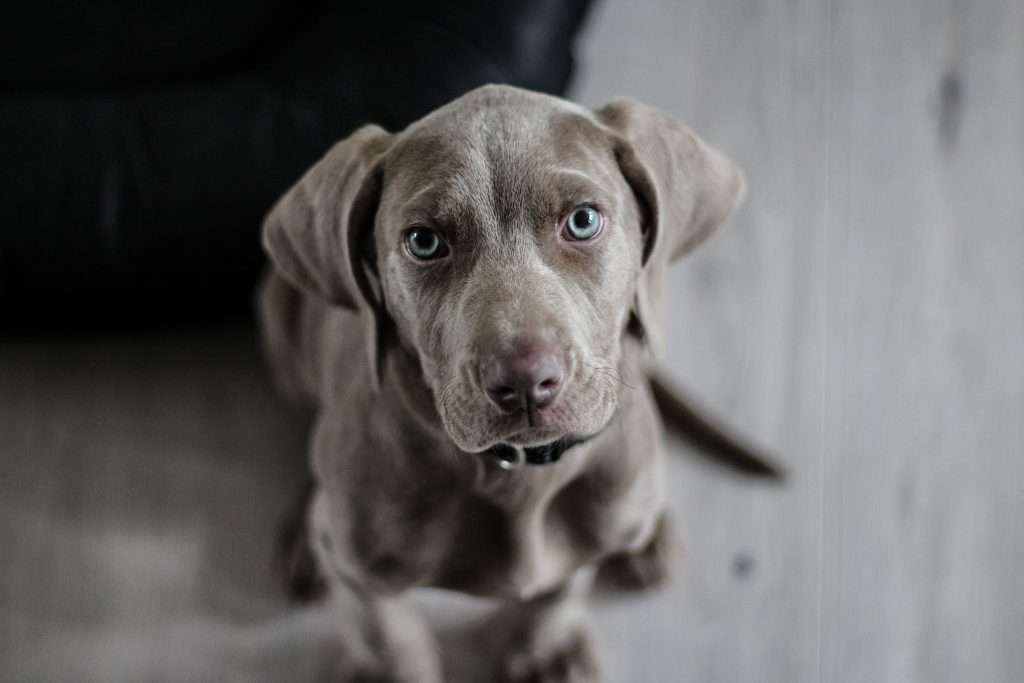Like humans, every dog has a particular smell, which is usually only noticeable when you are nearby.
However, sometimes, this can be very strong and unpleasant.
Various factors could cause a smelly dog. Usually, it is just its fur. However, the smell could also be caused by an underlying medical condition.

What is the reason my dog smells?
Wet fur & rolling in faeces
Anyone who has ever smelled a dirty dog knows how bad the smell can be! It really is very unpleasant.
The smell gets even worse when in a warm room as the heat stimulates the skins sebum production.
The only way to get rid of it is to bathe your dog using a pH neutral shampoo that is kind to your dog’s skin. For example, the Anifit Natural pet pro shampoo is a great choice.
After you have washed your dog, they should be dried as thoroughly as possible with absorbent towels or, if necessary, a hairdryer on very low heat.
Unfortunately, excessive washing is never advisable for dogs.
Brush your dog
Long-haired dogs, in particular, suffer from matting, which is mainly found in the undercoat.
The dog’s skin becomes irritated and itchy, which stimulates sebum production.
The lack of air supply under the coat contributes to the dog’s unpleasant smell. Removing old and matted dog hair with regular brushing will help your dog smell less.

Dirty dog bed
A dog bed may look lovely for the first few weeks, but if it is not washable (at high temperatures), then it will eventually start to whiff.
Dog skin produces significantly more sebum than human skin, so dog blankets and beds will eventually smell, which transfers to your dog’s coat.
Coupled with dog hair and dirty paws, you have a potential stink bomb!
Regular washing will keep the smell away.
Bad teeth
Bad teeth or leftover food in the spaces between the teeth can cause a foul smell.
At first, this may not be obvious, but an unpleasant odour can easily be identified.
Extensive tooth cleaning with special toothbrushes and dog toothpaste can remedy this. Any coarse or large food residues can usually be removed by hand.
However, if the unpleasant smell from the dog’s mouth is due to tartar or gum inflammation, you should consult a veterinarian immediately.
Dirty Ears
Dirty ears can easily lead to a very unpleasant odour in dogs and lead to severe ear infections.
It is therefore vital to regularly check your dog’s ears. Cleaning should be done using a slightly damp cloth or flannel which is gently rubbed around the inside of the ear.
However, if the unpleasant smell continues, you should consult a veterinarian immediately.

Anal gland inflammation
One of the most common medical reasons for an unpleasant odour in dogs is anal gland inflammation.
The anal glands secrete a specific scent that is needed to mark territory. With each bowel movement, the dog also excretes the anal gland secretion.
Anal gland inflammation is often accompanied by a dog rubbing its bottom along the floor to remedy the problem.
However, this usually only has limited success.
The secretion no longer drains properly and triggers a foul smell if the glands are blocked.
However, if you suspect an anal gland inflammation, you should consult a veterinarian immediately.
Skin infections
If your dog smells and any of the above solutions do not alleviate the problem, it could be a skin infection.
Many possible triggers include allergies, parasites, fungus, or bacterial infection.
Probably the most common cause is food allergies, in which the skin produces a large number of skin secretions that significantly change the smell of the animal.
Injuries that do not heal by themselves and start to ooze are also a possible trigger for unpleasant odours in dogs.
If you notice that the smell of the dog’s skin has altered, you should visit a veterinarian immediately.
Gastrointestinal Diseases
Feeding your dog poor or incorrect food can lead to gastrointestinal diseases, as well as your dog ingesting something that does not agree with them.
There may even be a food intolerance or an allergy that triggers these symptoms, so if your dog stinks, this may be due to a disease in the gastrointestinal tract.
An infestation with worms or other parasites could also negatively affect the digestive system’s natural balance.
Bloating and fluctuance is usually the cause of the smell. However, if the symptoms persist, you should immediately take your dog to a veterinarian.
Renal insufficiency
The job of a dog’s kidneys is to filter the toxins out of the body and remove them in urine.
If the kidneys cannot process the toxins, these will accumulate, resulting in a very unpleasant smell and a severe risk of kidney disease.
Renal insufficiency can usually be identified from a simple blood count and treated by the veterinarian.
However, chronic kidney diseases are difficult to treat and often require an adapted diet. Therefore, it is essential to take your pet to the vet as early as possible to rule out serious kidney disease.

Diabetes
If your has diabetes, it will develop an unpleasant odour over time.
This can be easily recognised as the animal’s body automatically tries to stabilise the pH of the blood. This releases acetone, which is contained in the body’s fatty acids and is excreted through the animal’s mouth.
This creates a smell (that is similar to nail polish remover). An immediate trip to the vet is advised if you notice this smell.
What influence does diet have on the dog’s smell?
If your dog is smelly, very few dog owners consider that poor nutrition could be the reason. However, a constant bad smell can indicate an incorrect or incomplete diet.
Switching your dog’s diet could solve the problem.
Wherever possible, your dog should be fed fresh and high-quality dog food that is precisely tailored to their needs.
The proportion of high-quality meat is particularly important, along with added fruit and vegetables.
Various factors such as diet, skin moisture or temporary flatulence often play a central role. However, if your dog’s unpleasant stench does not go away on its own within a few days, a veterinarian should be always be consulted.





